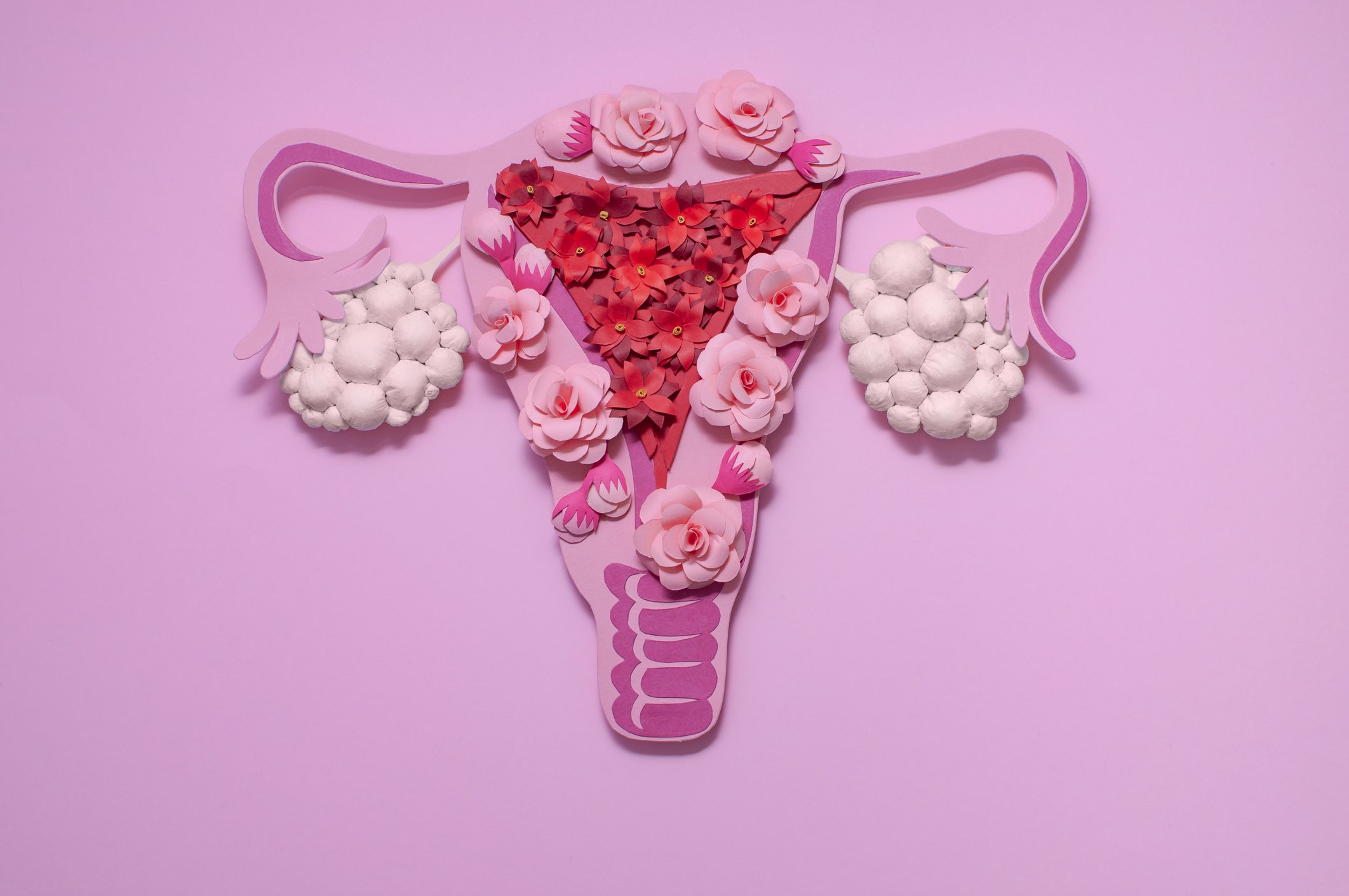At Juniper Family Health, our naturopathic physicians understand that even before perimenopause begins, many women in their late 30s notice shifts in their cycles, mood, energy, and fertility. While menopause may not be on the horizon just yet, the hormonal changes that kick-start the transition often begin during this time. Here's a guide rooted in expert insights from menopause associations, presented with our integrative approach in mind.
Read moreUnderstanding Premature Ovarian Insufficiency (POI) and Early Menopause - By Dr. Meghan van Drimmelen, ND
As a women’s health advocate and menopause provider, I would like to shed light on two conditions that can dramatically impact quality of life and health outcomes for women - premature ovarian insufficiency (POI) and early menopause. Both of these conditions can bring about challenges, both physically and emotionally, but with proper diagnosis and a comprehensive treatment approach, women can effectively manage their symptoms and preserve their overall health and well-being.
Read moreSpotlight on Dr. Chelsea Cole ND - Juniper Family Health
My practice is all about finding ease. Whether it is with food and eating, hormonal shifts and menstrual cycles, or mental wellbeing. I am passionate about helping people experience better periods at all life stages, improved digestion & relationship to food, and improved mental health.
Read moreUnderstanding the Impact of Hashimoto's Thyroiditis on Fertility and Miscarriage - By Dr. Meghan van Drimmelen ND
As a naturopathic physician who works in the reproductive health field, I often encounter individuals struggling with fertility issues and recurrent miscarriages, and one of the common underlying factors I observe is Hashimoto's thyroiditis, also known as chronic autoimmune thyroiditis. In this article, we will explore the effects of Hashimoto's thyroiditis on reproductive health, including its impact on fertility and miscarriage, and discuss naturopathic supports that may help improve reproductive outcomes.
Read moreUnderstanding Perimenopause: Early vs. Late Signs and Symptoms - By Dr. Meghan van Drimmelen, ND
As a naturopathic doctor with a passion for women's health, I often encounter patients who are navigating the phase of life known as perimenopause. This transitional period can bring about various changes in a woman's body, with early and late perimenopause marking distinct stages in the process. To shed light on this topic, let's delve deeper into the signs and symptoms of each phase, as well as provide clarity on perimenopause, menopause, and postmenopause.
Read moreThe Power of Diet in Managing PCOS: Exploring the Mediterranean Diet and Low Glycemic Index Foods - By Dr. Meghan van Drimmelen, ND
Polycystic Ovary Syndrome (PCOS) is a common hormonal disorder affecting women of reproductive age, often causing difficulty with weight management, insulin resistance, acne, menstrual cycle irregularity and fertility concerns. While there is no definitive cure for PCOS, adopting a healthy diet can play a crucial role in managing insulin resistance and its associated symptoms. In this article, we will explore the Mediterranean diet and low glycemic index foods as potential dietary approaches to support women with PCOS.
Read moreUnderstanding the Link Between Hypothalamic Amenorrhea and Bone Health - By Dr. Chelsea Cole ND
Many people are aware that having irregular periods negatively affects hormones and fertility, but did you know that not having a period can affect your bone health? For example, hormonal conditions like hypothalamic amenorrhea (HA), increase the risk of low bone density and fractures. If you are struggling with an irregular or absent cycle, this is just another reason to investigate your hormones, and get on a plan to feel better.
Read moreThe Power of HIIT: Improving PCOS Symptoms One Workout at a Time - By Dr. Chelsea Cole, ND
Have you heard about avoiding high intensity exercises if you have polycystic ovary syndrome (PCOS)? The thought is that these activities increase cortisol levels, which can negatively affect hormone balance. In fact, there is a lot of online discussion these days about modifying your movement depending on where you are in your menstrual cycle, for a variety of different hormonal concerns, including PCOS. While it makes sense to tune into your body, and honor what you need, sometimes this conversation is filled with misinformation and can become another barrier to regular movement. So, I want to take some time to talk about recent research into the benefits of high intensity interval training (HIIT) for those with PCOS.
Read moreNavigating Endometriosis with Food: Key Nutritional Strategies to Consider - By Dr. Meghan van Drimmelen, ND
Endometriosis is a condition characterized by the presence of endometrial tissues outside the uterine lining, causing symptoms such as pelvic pain, dysmenorrhea, and fertility complications. While there are a variety of treatment options available to ease symptoms of endometriosis, recent research suggests that dietary interventions may have a role in the prevention and management of this condition. In this article, we will explore the link between diet and endometriosis and discuss important nutritional strategies that may help improve symptoms and overall well-being.
Read moreCyclical Progesterone Therapy for Heavy Menstrual Periods in Perimenopause - By Dr. Meghan van Drimmelen, ND
Heavy menstrual bleeding in is one of the most common perimenopausal concerns we see in naturopathic practice. In this article, we will explore the use of cyclical progesterone therapy as an effective option for managing heavy menstrual periods in perimenopause.
Read moreThe Fertility Benefits of Inositol in Women with PCOS - By Dr. Meghan van Drimmelen, ND
Polycystic ovary syndrome (PCOS) is a hormonal disorder that affects many women of reproductive age. In this blog article, Dr. Meghan van Drimmelen reviews how inositol naturally works in the body, and the evidence to support its use for improving fertility outcomes in women with PCOS.
Read moreJuniper News & Health Resources - Fall Edition
Juniper news, fall nutrition and recipe inspiration, World Menopause Month, and more (…)
Read moreGetting to Know Your Menstrual Cycle: Ovulation - By Dr Chelsea Cole, ND
Learn why ovulation is important beyond fertility, common causes of anovulation, and how you can determine whether or not you are ovulating (…)
Read moreGetting to Know Your Menstrual Cycle: Mood, Hormones, and Menstruation - By Dr. Chelsea Cole, ND
Learn all about why mood changes occurr during the mesntrual cycle in Dr. Chelsea Cole’s newest blog article (…)
Read moreGetting to Know Your Menstrual Cycle: The 3 Phases - By Dr. Chelsea Cole, ND
Learn all about the 3 phases of the menstrual cycle and what hormones govern them, in Dr. Chelsea Cole’s newest blog article (…)
Read moreNaturopathic Approaches to Healthy Sleep - Dr. Meghan Dougan, ND
Do you have issues falling or staying asleep? Dr. Meghan Dougan, ND discusses common causes of sleep disturbances in her newest video blog (…)
Read moreHow To Reduce Toxin Exposure To Support Hormone Health - Dr. Courtenay Boer, ND
It’s no secret that our environment can affect our health. Factors are diverse, from the quality of the air we breathe, to the food we eat, to the clothes we wear and beyond. Environmental toxins are ubiquitous in our world and they have significant consequences for health and hormones. Many of these toxins have been found to have endocrine-disrupting properties, so we label them as endocrine-disrupting chemicals or EDCs. Some of these EDCs have been identified as xenoestrogens, which means they are exogenous (environmental) chemical compounds that mimic estrogen in the body and can modulate estrogenic activity (…)
Read moreGetting to Know Your Menstrual Cycle: Infrequent or Absent Cycles - Dr. Chelsea Cole, ND
While menstruating can be a difficult, and sometimes inconvenient, monthly experience, it is still concerning when a menstrual cycle is missed. Outside of pregnancy, perimenopause/menopause, or some hormonal intrauterine devices (IUD), it is not normal to have infrequent or absent menstrual cycles. Learn all about underlying causes, and laboratory testing for irregular or absent menstrual cycles in Dr. Chelsea Cole’s newest blog article (…)
Read moreDietary Approaches to PCOS - Dr. Chelsea Cole, ND
Polycystic ovary syndrome (PCOS) is the most common hormonal disorder that affects women of reproductive age. Learn how dietary changes can help improve hormone balance and reduce symptoms in women with PCOS (…)
Read moreWhat Women Need to Know about Estrogen Dominance
One of the most common types of hormone imbalance women experience as they get older is estrogen dominance. Heavy or chronic stress can lead to skipped ovulation, and this can lead to long term estrogen dominance.
Read more


















